

Menstruation often isn’t a fun period for women, and in some case it’s nearly debilitating. Many turn to plants to alleviate the pain and suffering connected to menses. Here are 5 plants to relieve painful periods.
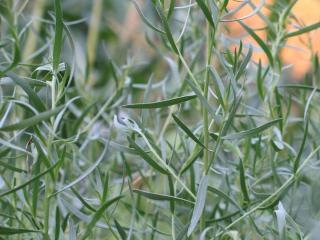 Tarragon, Artemisia dracunculus, is a perennial aromatic plant, a member of the aster family from which an essential oil is extracted. When used topically, it is applied through localized massages to relieve the pain of severe cramps associated with menstruation.
Tarragon, Artemisia dracunculus, is a perennial aromatic plant, a member of the aster family from which an essential oil is extracted. When used topically, it is applied through localized massages to relieve the pain of severe cramps associated with menstruation.
Mix a vegetable oil (neutral base) with 3 drops of tarragon essential oil, then massage the stomach where pain pulsates.
Tarragon essential oil is prohibited for people who suffer or have suffered from hormone-related cancer. It should be avoided by pregnant women and children under 3 years old. Please note that this oil can be irritating and photosensitizing.
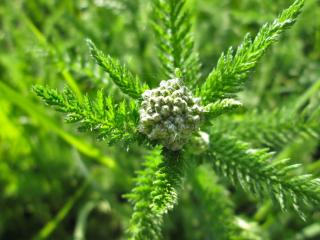 Yarrow, Achillea millefolium, is a plant with multiple medicinal properties. This aster family plant is known for its antispasmodic and relaxing effects. It helps to relieve contractions of uterine muscles.
Yarrow, Achillea millefolium, is a plant with multiple medicinal properties. This aster family plant is known for its antispasmodic and relaxing effects. It helps to relieve contractions of uterine muscles.
In an infusion, mix one to two teaspoons of yarrow with ½ cup of hot water. Consume this infusion up to three times a day between meals.
Yarrow is prohibited for:
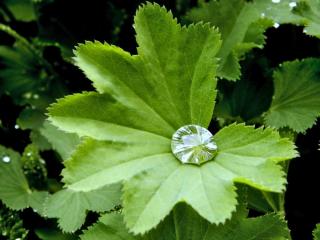 Lady’s Mantle, Alchemilla vulgaris and Alchemilla xanthrochlora, is a member of the rose family that contains active ingredients with a similar action to progesterone (a hormone involved in premenstrual syndrome). Rich in tannins, it also helps reduce uterine bleeding.
Lady’s Mantle, Alchemilla vulgaris and Alchemilla xanthrochlora, is a member of the rose family that contains active ingredients with a similar action to progesterone (a hormone involved in premenstrual syndrome). Rich in tannins, it also helps reduce uterine bleeding.
Infuse 4 teaspoons of lady’s mantle in a cup of hot water for 15 minutes. This lady’s mantle infusion can be drunk for up to two cups per day.
Note: for enhanced efficacy, lady’s mantle can be combined with lemon balm.
Attention, as lady’s mantle has a very similar action to progesterone, it may be contraindicated for women taking oral contraceptives. Therefore, a doctor’s opinion is necessary in this case. Individuals suffering from gastritis or gastro-duodenal ulcers should not consume lady’s mantle.
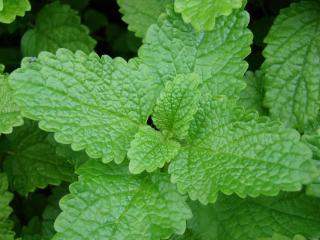 Known and used since ancient Greece, lemon balm, Melissa officinalis, offers antispasmodic properties that are very useful for relieving painful periods. It also has an effect on nervous disorders, including stress, anxiety, and irritability.
Known and used since ancient Greece, lemon balm, Melissa officinalis, offers antispasmodic properties that are very useful for relieving painful periods. It also has an effect on nervous disorders, including stress, anxiety, and irritability.
In the form of a herbal tea, lemon balm can be ingested up to two to three cups per day, without exceeding one week of treatment. Use ½ to 1½ teaspoons of dried lemon balm leaves and flowers.
Taking lemon balm is not recommended for pregnant or breastfeeding women, as well as for children. This plant should be used with caution in case of thyroid problems.
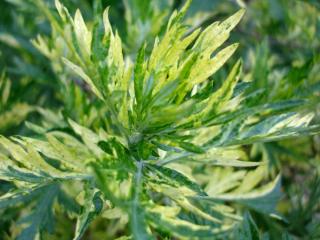 Antispasmodic, anti-inflammatory, diuretic, antifungal, and antibacterial… Common mugwort, Artemisia vulgaris, is a herbaceous plant appreciated for its numerous medicinal properties. The emmenagogue property of mugwort allows for the relief of menstrual disorders.
Antispasmodic, anti-inflammatory, diuretic, antifungal, and antibacterial… Common mugwort, Artemisia vulgaris, is a herbaceous plant appreciated for its numerous medicinal properties. The emmenagogue property of mugwort allows for the relief of menstrual disorders.
In the form of an infusion, steep one tablespoon of mugwort in a cup of hot water for ten minutes. This infusion can be consumed up to 3 cups per day. Start the treatment 2 to 3 days before the start of menstruation and continue throughout.
At high doses, mugwort can be toxic. Therefore, medical consultation before use is necessary. Mugwort is contraindicated for pregnant and breastfeeding women, as well as children. It is prohibited for individuals with allergies, renal or hepatic insufficiency.
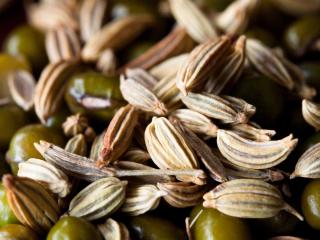 Fennel, Foeniculum vulgare, possesses antispasmodic properties. It is used to relieve the painful spasms associated with menstruation.
Fennel, Foeniculum vulgare, possesses antispasmodic properties. It is used to relieve the painful spasms associated with menstruation.
Take 1 gram to 2 grams of dried and coarsely ground fennel seeds, 3 times per day. Never exceed 7 grams of dried seeds per day. The treatment should not last for more than two consecutive weeks.
At high doses, fennel can be toxic. Fennel is prohibited for individuals allergic to anethol (a chemical compound), celery, cumin, coriander, green anise, dill, mugwort, ragweed, and chamomile. It is also prohibited for women who suffer from, or have suffered from, hormone-dependent cancer. Pregnant women should consume neither fennel seeds nor essential oil.